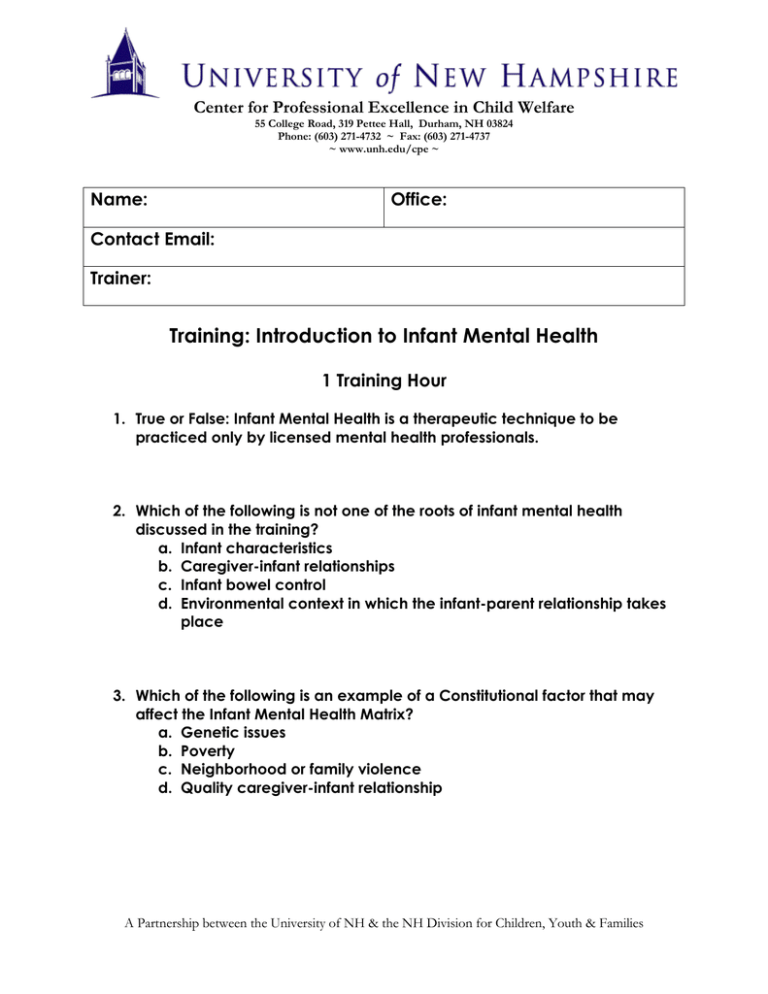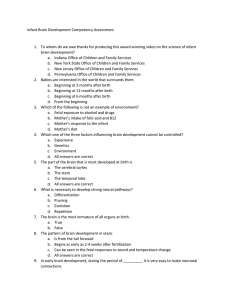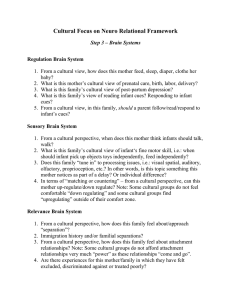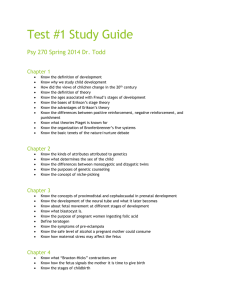Center for Professional Excellence in Child Welfare
advertisement

Center for Professional Excellence in Child Welfare 55 College Road, 319 Pettee Hall, Durham, NH 03824 Phone: (603) 271-4732 ~ Fax: (603) 271-4737 ~ www.unh.edu/cpe ~ Name: Office: Contact Email: Trainer: Training: Introduction to Infant Mental Health 1 Training Hour 1. True or False: Infant Mental Health is a therapeutic technique to be practiced only by licensed mental health professionals. 2. Which of the following is not one of the roots of infant mental health discussed in the training? a. Infant characteristics b. Caregiver-infant relationships c. Infant bowel control d. Environmental context in which the infant-parent relationship takes place 3. Which of the following is an example of a Constitutional factor that may affect the Infant Mental Health Matrix? a. Genetic issues b. Poverty c. Neighborhood or family violence d. Quality caregiver-infant relationship A Partnership between the University of NH & the NH Division for Children, Youth & Families 4. The 2nd writing reflection asked you to take 5 minutes to write down a list of examples of constitutional, environmental, and relational factors from your own professional experience. Please provide an example of one of the items you listed. 5. True or False: “The Strange Situation”, in which an infant is placed into a stressful, new situation while the caregiver shifts her/his availability to the infant, is a highly reliable and valid measure of early relationship quality. 6. According the training, in which of the following ways do early relationships not impact the developing mind? a. the Content (the things we know, think, believe, and learn) b. the Cooler (the “temperature” of the parent/child relationship) c. the Container (the physical structure of the brain) 7. True or False: The neurobiological impact of a parent’s traumatic history and struggles to cope with current stressors can interfere significantly with the parent-child relationship. 8. The training describes 3 strategies to intervene in the parent-child relationship. Which of the following is not one of the 3 strategies discussed? a. Teaching b. Modeling c. Showing d. Parallel Process A Partnership between the University of NH & the NH Division for Children, Youth & Families 9. The training discussed 6 categories of infant mental health service. Which of the following is not one of the categories discussed? a. Early Relationship Assessment & Support b. Advocacy c. Cognitive Behavioral Therapy d. Developmental Guidance 10. True or False: Parent-Infant Psychotherapy pays attention to how parents’ past experiences, especially in childhood, may be expressed in the present in relation to the baby and the parents’ experience of her/him. Please attach your Action Plan and this completed Participation Check and submit them to UNH CPE to the attention of Pam Seufert. Fax #: (603) 271-4737 A Partnership between the University of NH & the NH Division for Children, Youth & Families


